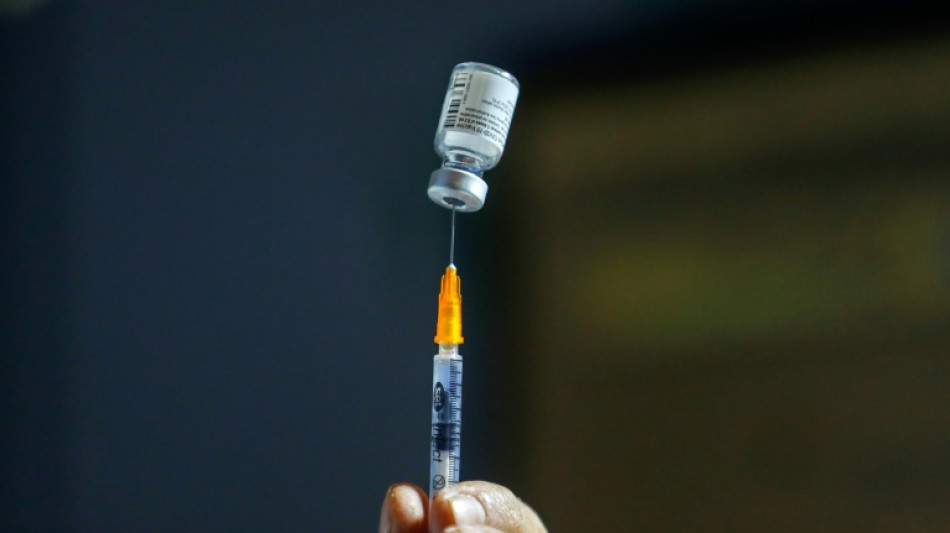
-
 Gstaad gives O'Brien record 21st Breeders' Cup win
Gstaad gives O'Brien record 21st Breeders' Cup win
-
After the tears, anger on Rio's blood-stained streets

-
 Sinner boosts number one bid in Paris, to face Zverev in semis
Sinner boosts number one bid in Paris, to face Zverev in semis
-
Springer back in Toronto lineup as Blue Jays try to close out Dodgers

-
 Nationals make Butera MLB's youngest manager since 1972
Nationals make Butera MLB's youngest manager since 1972
-
Guirassy lifts Dortmund past Augsburg ahead of Man City clash

-
 G7 says it's 'serious' about confronting China's critical mineral dominance
G7 says it's 'serious' about confronting China's critical mineral dominance
-
NFL fines Ravens $100,000 over Jackson injury status report

-
 NBA refs to start using headsets on Saturday
NBA refs to start using headsets on Saturday
-
Trump says Christians in Nigeria face 'existential threat'

-
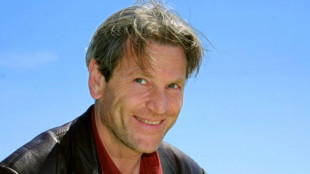 French-Turkish actor Tcheky Karyo dies at 72
French-Turkish actor Tcheky Karyo dies at 72
-
Food stamps, the bulwark against hunger for over 40 mn Americans
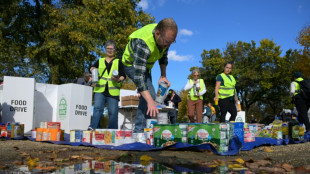
-
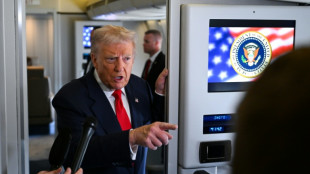 Trump keeps world guessing with shock nuclear test order
Trump keeps world guessing with shock nuclear test order
-
Wall Street stocks rebound on Amazon, Apple earnings

-
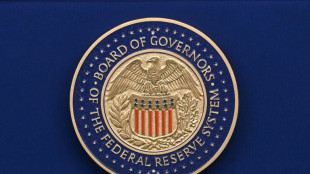 US Fed official backed rate pause because inflation 'too high'
US Fed official backed rate pause because inflation 'too high'
-
Prayers and anthems: welcome to the Trump-era Kennedy Center

-
 Swiss central bank profits boosted by gold price surge
Swiss central bank profits boosted by gold price surge
-
Sinner beats Shelton to boost number one bid in Paris

-
 French court jails Bulgarians for up to four years for Holocaust memorial defacement
French court jails Bulgarians for up to four years for Holocaust memorial defacement
-
Profits dip at ExxonMobil, Chevron on lower crude prices
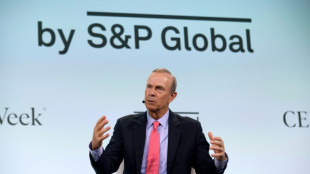
-
 Ashraf and Mirza skittle South Africa as Pakistan win 2nd T20
Ashraf and Mirza skittle South Africa as Pakistan win 2nd T20
-
2,000 trucks stuck in Belarus after Lithuania closes border: association

-
 French lawmakers reject wealth tax proposal in budget debate
French lawmakers reject wealth tax proposal in budget debate
-
Premier League blames European expansion for lack of Boxing Day games

-
 Bublik sets up Auger-Aliassime semi-final at Paris Masters
Bublik sets up Auger-Aliassime semi-final at Paris Masters
-
World's most expensive coffee goes on sale in Dubai at $1,000 a cup

-
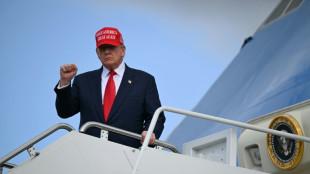 Trump stirs global tensions, confusion with nuclear test order
Trump stirs global tensions, confusion with nuclear test order
-
Panic across US as health insurance costs set to surge

-
 Court eases ban on Russian lugers but Olympic hopes on thin ice
Court eases ban on Russian lugers but Olympic hopes on thin ice
-
England captain Itoje targets Autumn Nations clean sweep

-
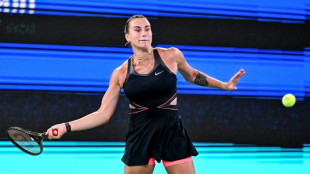 Calmer Sabalenka sets sights on WTA Finals crown
Calmer Sabalenka sets sights on WTA Finals crown
-
Spurs boosted by Romero return for Chelsea clash

-
 Sudan's RSF claims arrests as UN warns of 'horrendous' atrocities in Darfur
Sudan's RSF claims arrests as UN warns of 'horrendous' atrocities in Darfur
-
US says 'non-market' tactics needed to counter China's rare earth dominance

-
 China sends youngest astronaut, mice to space station
China sends youngest astronaut, mice to space station
-
From adored prince to outcast, Andrew's years-long fall from grace

-
 Rodri return fuels Guardiola belief in Man City title challenge
Rodri return fuels Guardiola belief in Man City title challenge
-
China holds send-off ceremony for space station astronauts

-
 Barcelona to show off unfinished Camp Nou with public training session
Barcelona to show off unfinished Camp Nou with public training session
-
Turkish court jails 11 for life over deadly hotel inferno

-
 Auger-Aliassime ends Vacherot run to reach Paris Masters semis
Auger-Aliassime ends Vacherot run to reach Paris Masters semis
-
Australia captain Wilson denies Wallabies use 'dangerous' breakdown tactics
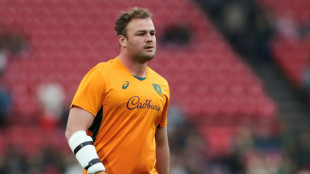
-
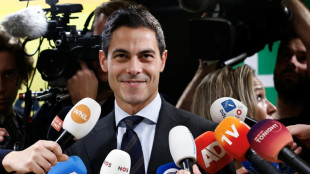 'Populists can be beaten': Dutch centrist Jetten claims election win
'Populists can be beaten': Dutch centrist Jetten claims election win
-
China's suspension of rare earth controls applies to EU: official

-
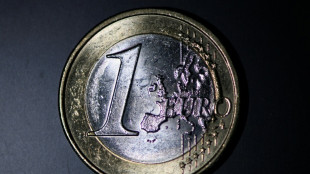 Italy complains about strong euro, urges ECB to cut rates
Italy complains about strong euro, urges ECB to cut rates
-
Louvre to get anti-ramming barriers by year end: minister

-
 Wall Street bounces on Amazon, Apple earnings
Wall Street bounces on Amazon, Apple earnings
-
AI giants turn to massive debt to finance tech race

-
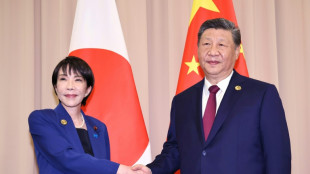 Japan PM says raised 'serious concerns' with Xi on South China Sea, Xinjiang
Japan PM says raised 'serious concerns' with Xi on South China Sea, Xinjiang
-
Shein set to open first physical store in Paris


The quest for a universal coronavirus vaccine
As vaccine makers rush to stamp out new Covid-19 variants, some scientists have set their sights higher, aiming for a universal coronavirus vaccine that could tackle any future strains and possibly even stave off another pandemic.
Since the race for a first Covid jab supercharged a new generation of vaccine technology, there have been numerous efforts to develop pan-coronavirus immunisation.
Drew Weissman of the University of Pennsylvania, who was a pioneer of the mRNA technology used in Pfizer's Covid vaccine, is leading one such project.
He said the problem with updating current vaccines to target all existing strains -- a plan announced by Pfizer earlier this month -- is that "new variants are going to appear every three or six months".
After more than two years simply trying to infect more people, he said, the virus is now starting to mutate specifically to get around the immunity gained from vaccines -- much as influenza's constant changing requires an updated shot every year.
"That makes it a little bit trickier, because now you're fighting head-to-head with the virus," Weissman told AFP.
So his team is working on a pan-coronavirus vaccine, which he said has tested well so far.
They are trying to find "highly conserved epitope sequences" -- more integral parts of the virus that cannot mutate readily because it would die without them.
But it's not going to be easy.
"We may have a universal vaccine in two or three years, but we're going to have to keep working on it and changing it over time to keep ahead of the virus," Weissman said.
- Expanding ambitions -
Covid was not the first coronavirus to jump from animals to humans this century: its older relative SARS killed nearly 800 people from 2002-2004, and the Middle East Respiratory Syndrome (MERS) followed in 2012.
When US-based biotech firm VBI Vaccines announced its pan-coronavirus project in the early days of the pandemic in March 2020, it targeted all three.
Francisco Diaz-Mitoma, VBI's chief medical officer, explained the premise by likening each antigen of their proposed vaccine to one of the three primary colours.
The firm hopes to provide antibodies not just for these three -- but also for "the various shades of orange, green, and purple found in between".
"In other words, we are trying to teach the immune system to expand upon the variations of virus it is capable of 'seeing' from the start," he told AFP.
He said VBI's vaccine had shown promising results so far -- including in bats and pangolins -- with clinical studies hoped to start in the coming months ahead of results in early 2023.
The ferritin nanoparticle vaccine effort led by Barton Haynes, director of Duke University's Human Vaccine Institute, has received funding from the US National Institute of Allergies and Infectious Diseases (NIAID).
He told AFP this vaccine, which targets SARS-like viruses but not a broader range of coronaviruses like MERS, had been shown to work well against Omicron.
- 'Leaping one step ahead' -
Pamela Bjorkman of the California Institute of Technology said a true pan-coronavirus vaccine was probably not realistic because there are so many lineages -- some which include common colds.
Her project uses a mosaic nanoparticle approach to target the B lineage of betacoronaviruses, which includes the original SARS-CoV and SARS-CoV-2, the virus that causes the disease Covid.
Bjorkman told AFP that even the "quest" for this specific lineage was comparable to the "many years of effort to make a universal influenza vaccine."
Like Haynes, she said the wide availability of a vaccine depended on how quickly they could begin human trials.
Even if none of the current pan-coronavirus vaccine projects are likely to be rolled out in the next year, their eventual arrival could change the world's relationship with Covid.
"If a pan-coronavirus vaccine is successfully able to establish a broader foundational immunity against coronaviruses, it would allow us, as a global society, to go from being one step behind, to leaping one step ahead of the pandemic," Diaz-Mitoma said.
The broadening horizons of vaccine research could also be one way Covid has forced the world to better prepare for the threat of even worse pandemics ahead.
The US-based Coalition for Epidemic Preparedness Innovations (CEPI) has earmarked $200 million (185 million euros) for pan-coronavirus research.
But it also has a $3.5 billion (3.2 billion euro) plan it hopes will help develop a vaccine targeting "the next Disease X" within 100 days of it emerging -- regardless of whether it is a coronavirus.
D.Schneider--BTB



